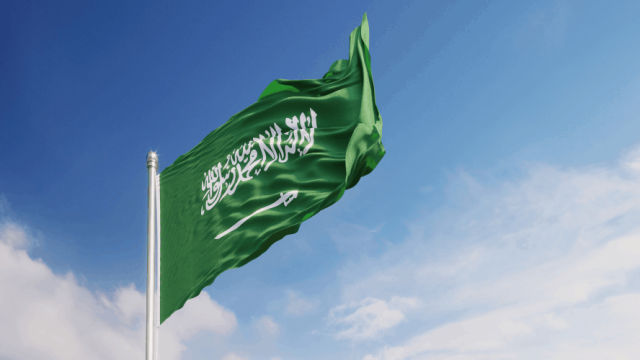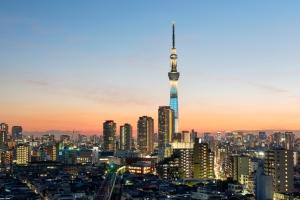Saudi Arabia has long been one of the world’s top oil-producing countries. To diversify its economy, it introduced numerous business-friendly measures to attract foreign investment in recent years.
In February, the country unveiled Programme HQ, its latest economic initiative aimed at luring overseas businesses. The new policy provides new incentives for foreign companies to establish their regional headquarters in the country.
Read on to discover how the new legislation coincides with Saudi Arabia’s drive to become the leading business hub in the Middle East—and what it means for companies planning expansion in the region.
Why the United Arab Emirates Pushes Saudi Arabia to Adopt Economic and Social Reforms
While Saudi Arabia has long been an economic powerhouse due to its vast oil reserves, it lags behind the United Arab Emirates (UAE) as the region’s commercial epicenter.
The UAE’s prominence as an international business capital was born out of necessity. To compensate for its lack of oil compared to other Middle Eastern countries, the UAE increases its economic competitiveness through pro-growth legislation. Among the country’s incentives are free trade zones (FTZs). Companies that operate in these special districts enjoy a 0% tax rate for up to 50 years after their initial establishment. Economic policies such as these favorable tax rates give the UAE an edge over Saudi Arabia when attracting foreign firms.
While the social and legal structure in the Arab world is more conservative than that of Western countries, the UAE has more quickly made concessions to attract overseas business. For example, expatriates in the UAE are allowed to divorce, live together if unmarried, and drink alcohol without applying for a license. On the other hand, Saudi Arabia bans alcohol, cohabitation of unmarried couples, and other customs common in the West.
To catch up to the UAE, Saudi Arabia has scaled back certain restrictive laws. In 2016, the country curtailed religious police who enforced bans on alcohol, music, and socializing between men and women. The following year, Saudi Arabia lifted a ban on movie theaters. In 2018, it finally ended an archaic law prohibiting women from driving.
Despite scaling back on these restrictions, Saudi Arabia still trails the UAE as the region’s leading commercial hub. While 45 companies in the Fortune 500 base their Middle Eastern headquarters in the UAE capital of Dubai, zero have set up their home base in Saudi Arabia’s capital of Riyadh.
How Programme HQ Promotes New Business Setup in Saudi Arabia
Saudi Arabia’s new Programme HQ initiative aims to help Riyadh close the gap with Dubai. The new policy requires companies seeking state-sponsored contracts to base their regional headquarters in Saudi Arabia.
Programme HQ complements previous Saudi policies designed to draw foreign investment. In 2016, Saudi Prince Mohammad bin Salaman introduced the Saudi Vision 2030 strategy. The plan allocates $3 trillion in funding for foreign companies that do business in the country. Programme HQ adds new requirements for firms that wish to take advantage of this funding. By specifying that companies receiving these funds must establish their regional headquarters in Saudi Arabia, rather than just an overseas branch, the country attempts to draw business from other Middle Eastern economies—namely the UAE.
In another move to increase foreign investment in Saudi Arabia, Programme HQ relieves Saudization requirements for the first 10 years a company establishes a presence in the country. Saudization is another program introduced under Saudi Vision 2030. The initiative aims to increase the number of Saudi nationals in the workforce by requiring employers to hire a certain percentage of Saudi professionals. By waiving this requirement for foreign companies, Programme HQ offers greater workforce control and less red tape.
Programme HQ also evens the playing field between Saudi Arabia and the UAE in terms of tax rates. The plan stipulates that companies setting up their regional headquarters in Saudi Arabia will be exempted from taxes for 50 years.
What Foreign Companies Need to Know About Programme HQ
Programme HQ takes effect on January 1, 2024. Analysts anxiously await more information about some of the plan’s core elements.
Khalid Al-Falih, Saudi Arabia’s investment minister, said that companies seeking government business contracts must set up a “major headquarters” in Saudi Arabia. Al-Falih expanded on this expectation: “We would want to see the companies having a major headquarters office with executive staff; their C-suite being here; operations in other countries reporting to it; and support functions... all taking place within their regional headquarters.”
Despite Al-Falih’s explanation, companies still seek clarity on the definition of headquarters—and are unsure how the government will ensure firms adhere to that definition. One banker with knowledge of the region said that firms might simply rename their Saudi Arabian offices as headquarters while continuing to do business in Dubai.
Experts are also unsure how Saudi Arabia will define “regional”, which could refer to:
- The area governed by the Gulf Cooperation Council (GCC)
- The Middle East and North Africa region (MENA)
- Europe, Middle East, and Africa region (EMEA)
Others are unsure how the rise of remote work and dispersed workforces will affect the plan. According to Theodore Karasik, senior adviser at consulting firm Gulf State Analytics, “We are moving towards a cloud-based economy and society, so a regional HQ could be on a cloud, and you don’t need physical space.”
Stay on Top of Changing Laws and Regulations in Saudi Arabia
Companies that plan on doing business with the Saudi Arabian government must track the situation as new details emerge. Partnering with an international expansion expert ensures firms stay ahead of Saudi Arabia’s new regulations and take advantage of new growth opportunities in the country.
Velocity Global provides global expertise, legal consultation, and expansion services in over 185 countries worldwide. Reach out today to learn how we can guide your strategy in Saudi Arabia and beyond.



